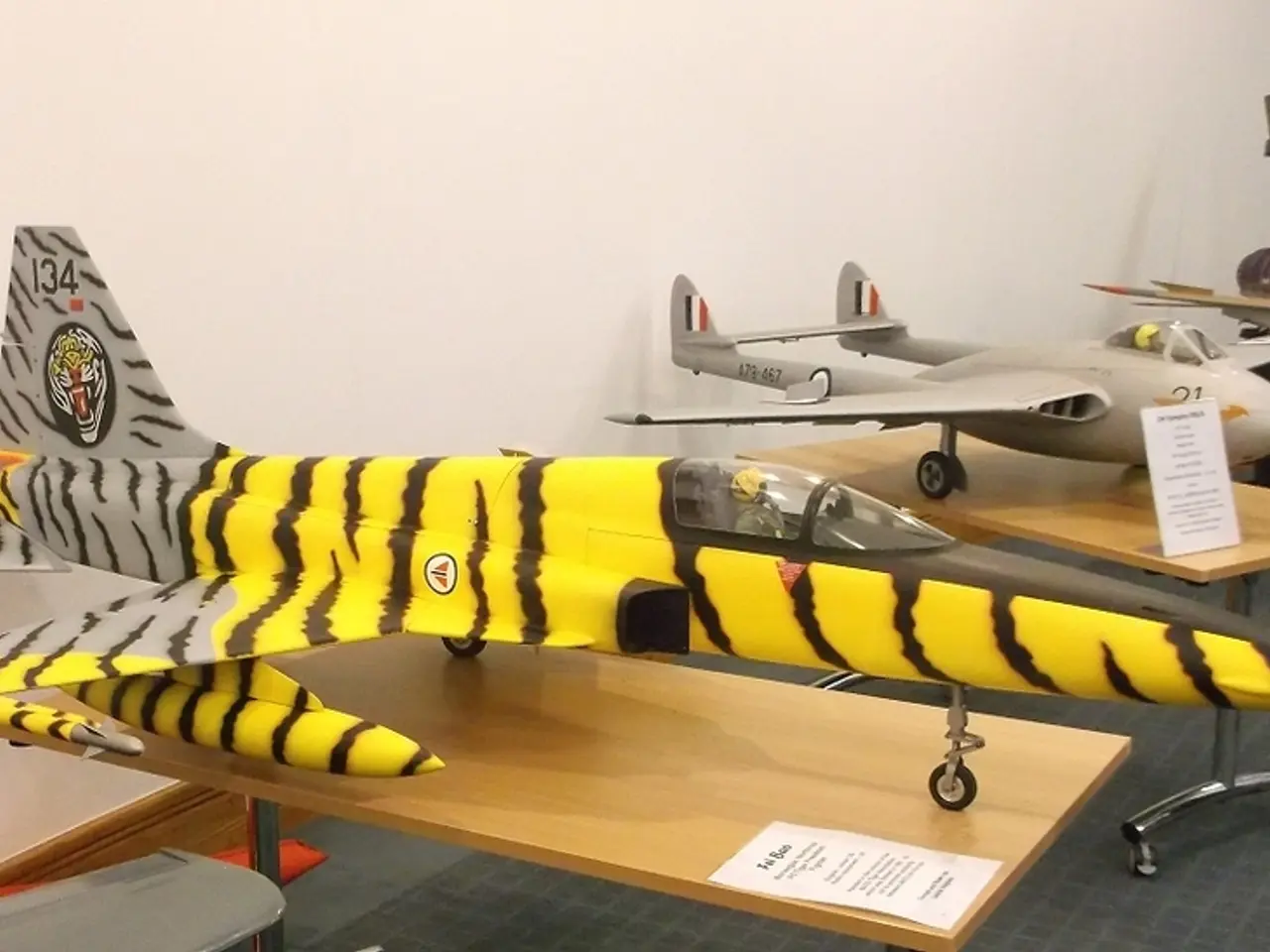Icelandair obtains a new Airbus flight training device
In a significant development for Icelandair, a new Airbus flight simulator has been introduced in Hafnarfjörður, Iceland. This addition marks a crucial step in the airline's pilot training processes and operational costs, bringing about enhanced efficiency and reduced expenses previously incurred through international training.
**Streamlined Training Processes**
The new simulator, an Airbus model, joins the existing two in Hafnarfjörður, operated by CAE Icelandair Flight Training, a subsidiary of Icelandair specialising in flight training. With the addition of the new simulator, pilot type rating training—mandatory for pilots to operate specific aircraft—can now be conducted locally instead of abroad. This development will provide pilots with greater access to training facilities, enabling more flexible and frequent training sessions.
**Consistent Recurrent Training**
Each pilot must complete at least 40 hours in the simulator to obtain certification for the relevant aircraft type. Recurrent training, which pilots are required to undergo four times a year, lasting four hours each session, will now be supported by the local simulator availability, ensuring regular, uninterrupted training schedules and maintaining high safety and competency standards.
**Operational Cost Reduction**
The new in-house simulator infrastructure eliminates costs associated with travel, accommodation, and possible lost productivity incurred during international training. By centralising training resources in Hafnarfjörður, Icelandair can streamline its training operations, improve coordination, and minimise disruptions to flight schedules due to pilot absences for overseas training.
In summary, the new Airbus flight simulator in Hafnarfjörður enables Icelandair to provide more efficient, flexible, and cost-effective pilot training, while also optimising overall operational processes. This development underscores Icelandair's commitment to safety, efficiency, and cost-effectiveness in its pilot training and operational strategies.
[1] Information sourced from Ásgeir Bjarni Lárusson, Managing Director of CAE Icelandair Flight Training.
The introduction of the Airbus flight simulator in Hafnarfjörður marks a strategic step for Icelandair, as it expands into the technology sector,, incorporating advanced simulation equipment into its aerospace industry operations. Simultaneously, this move is anticipated to result in substantial cost savings in the finance realm, with reduced expenditure on travel, accommodation, and lost productivity arising from international training sessions.




